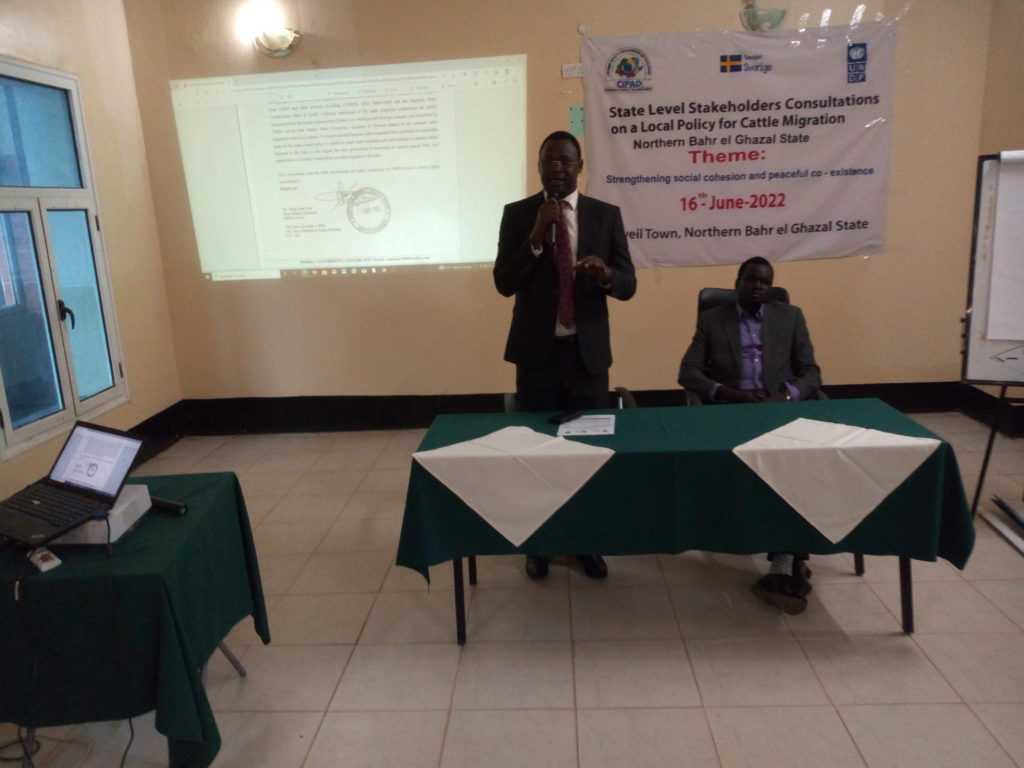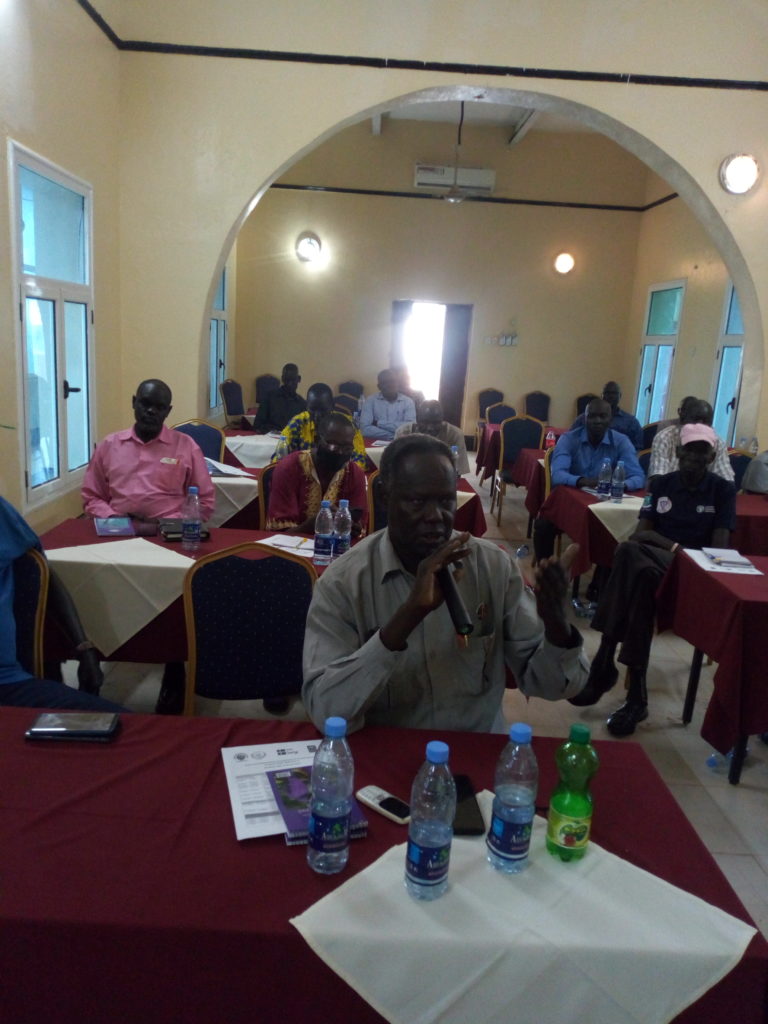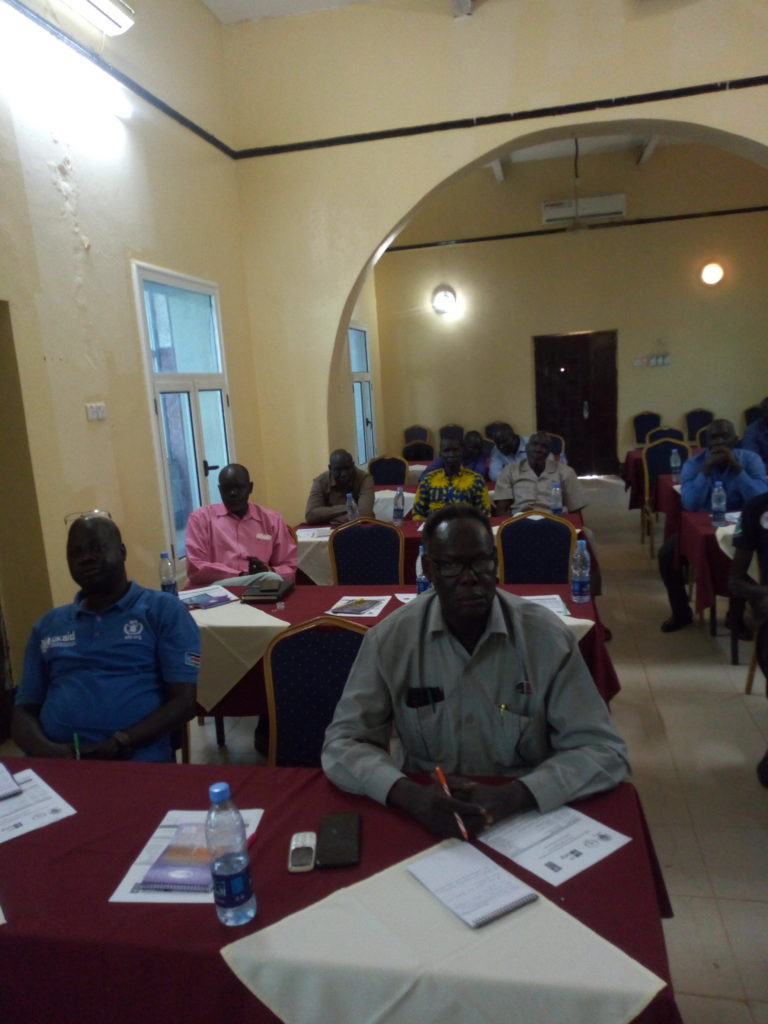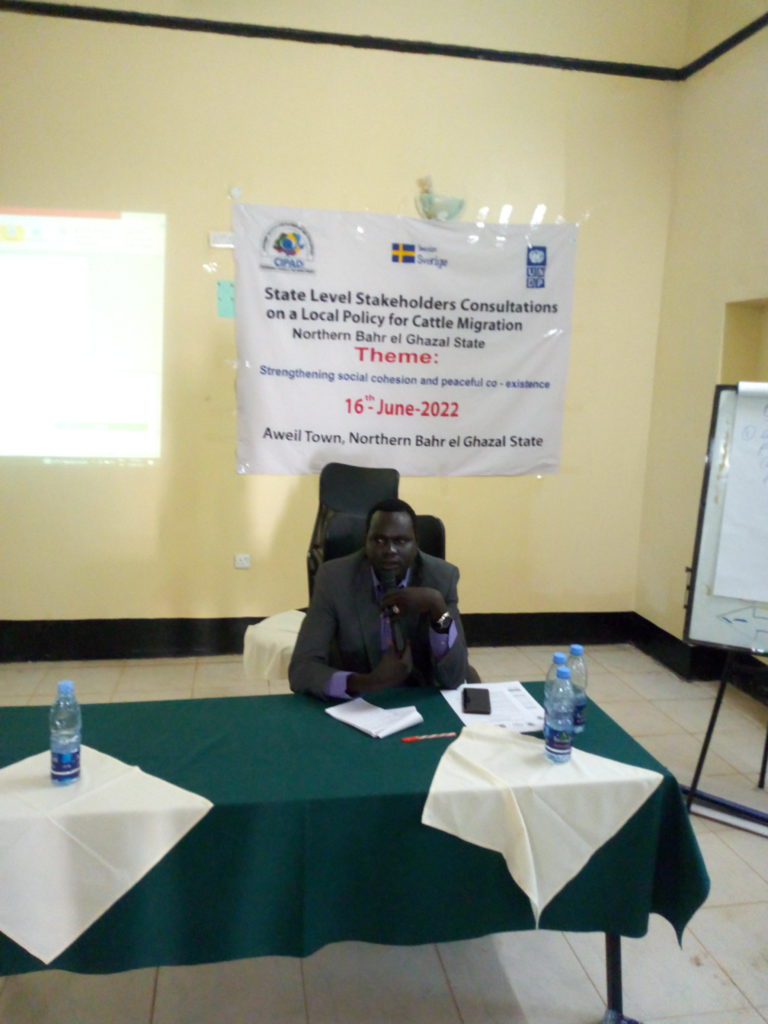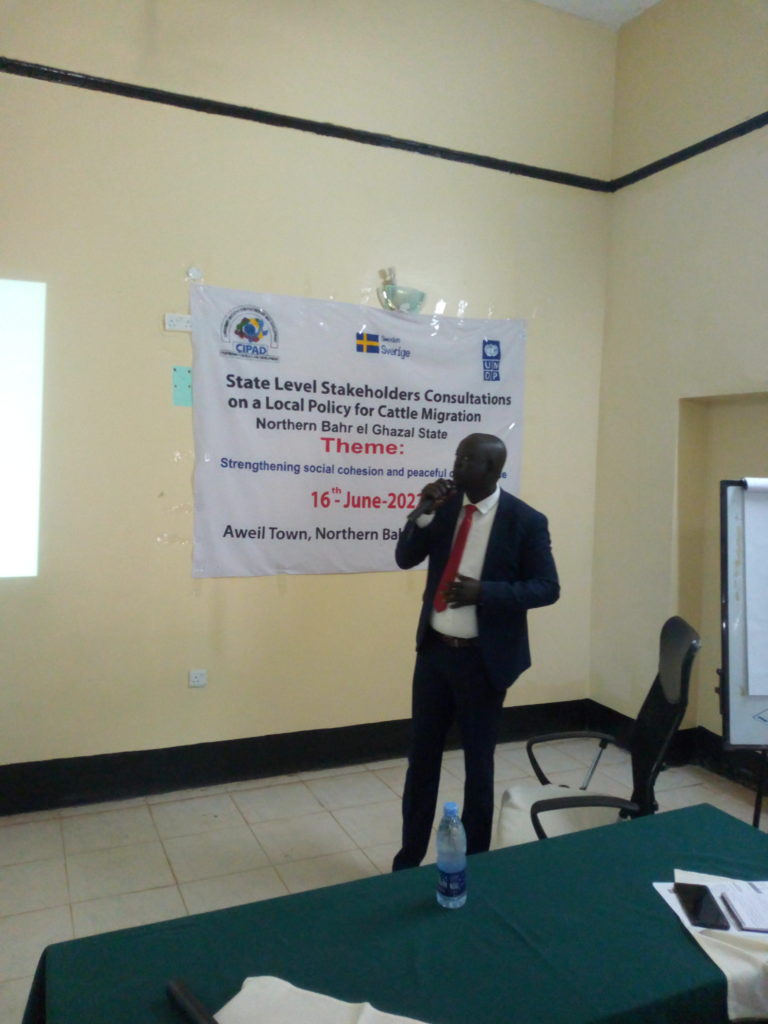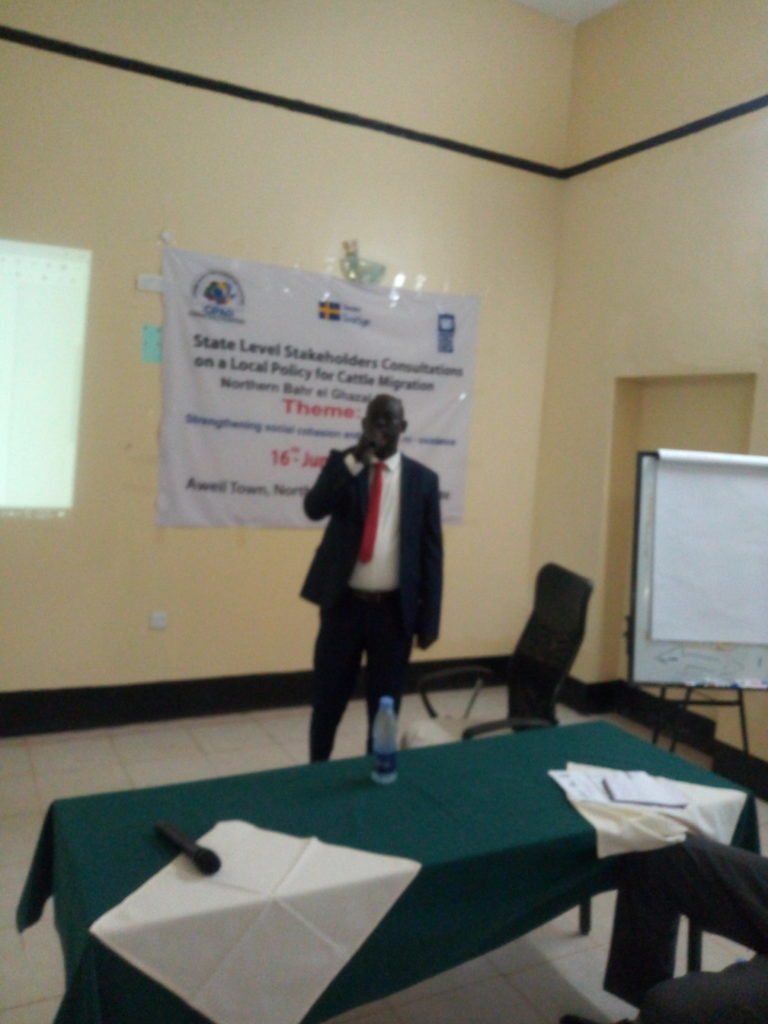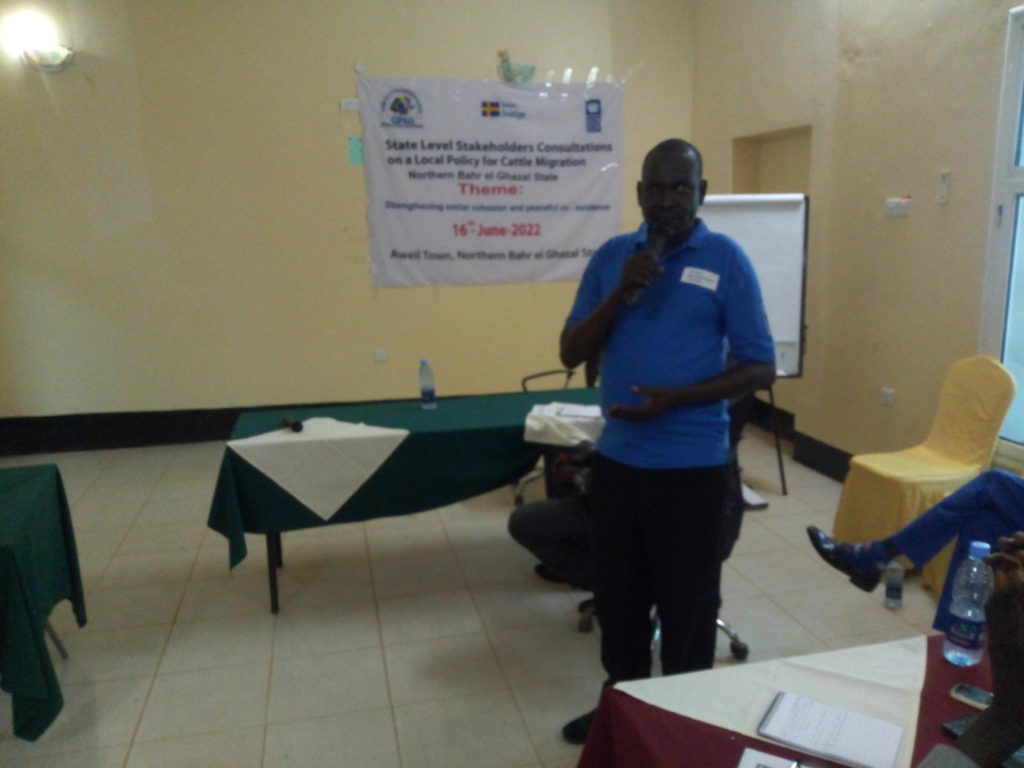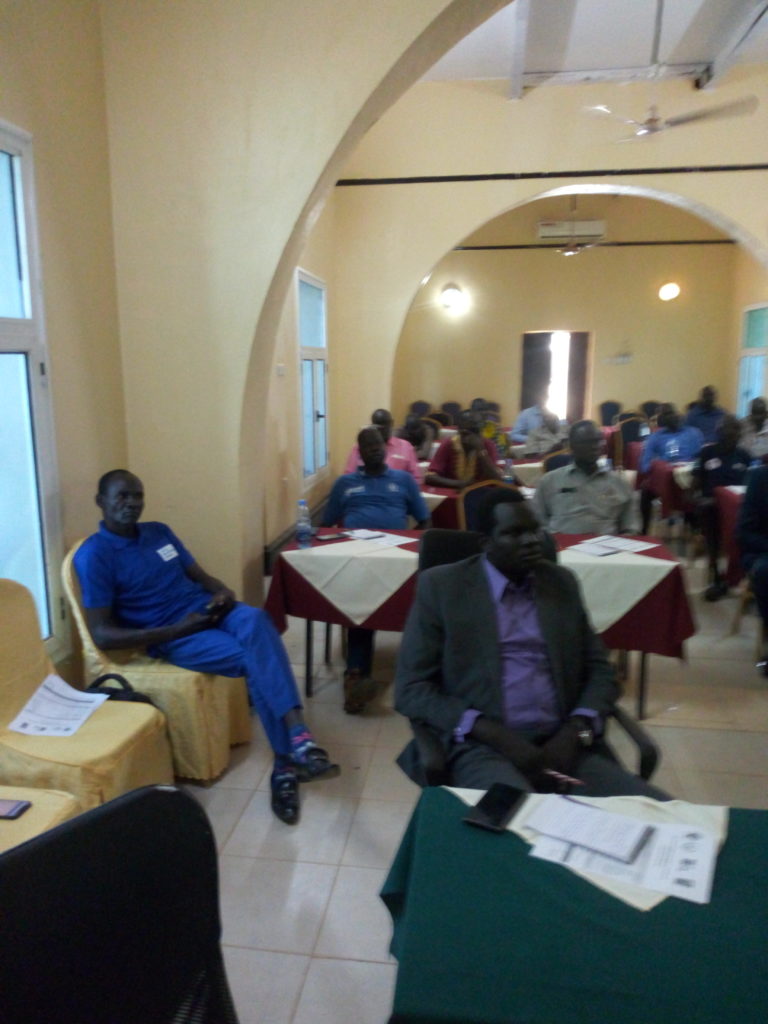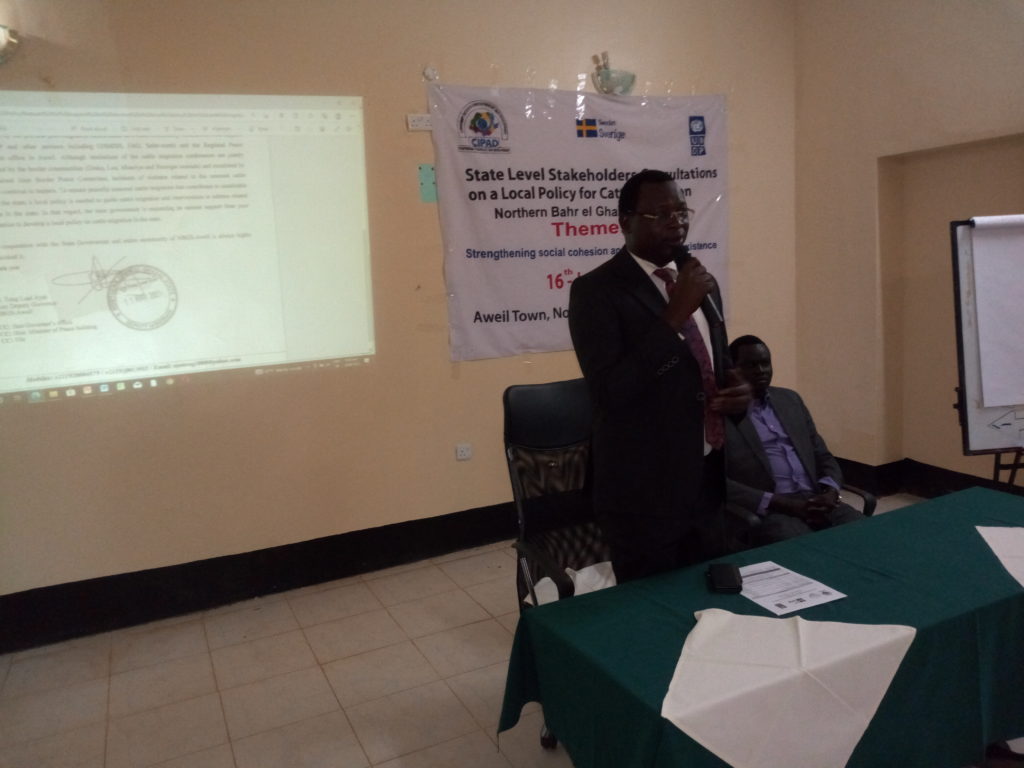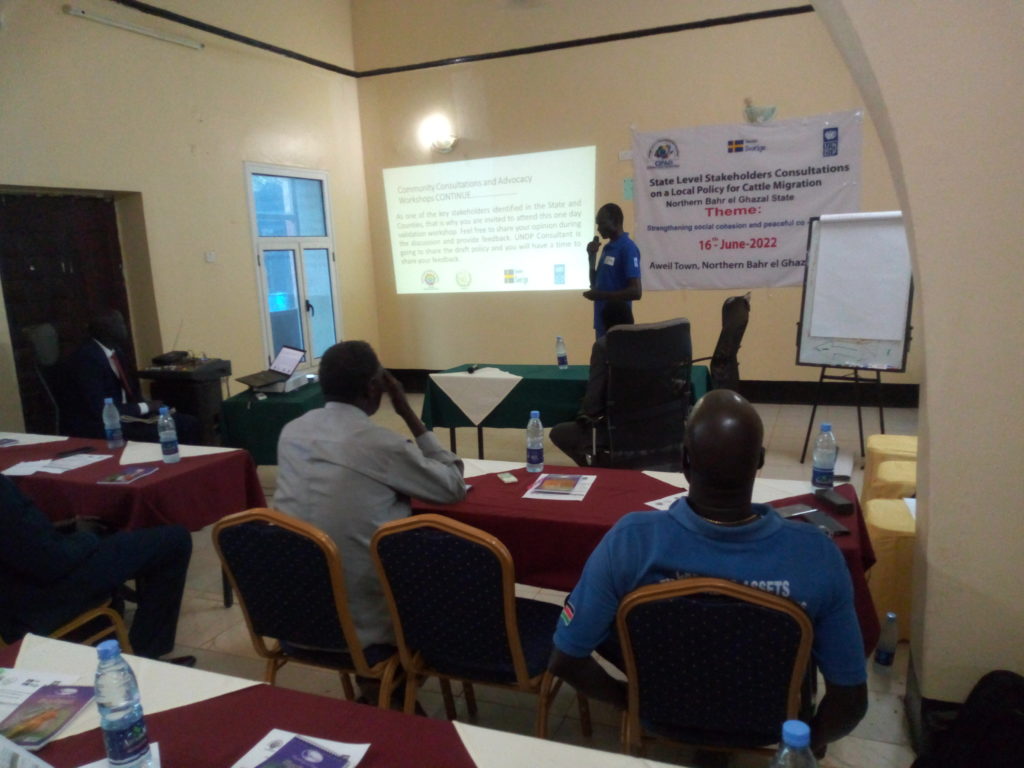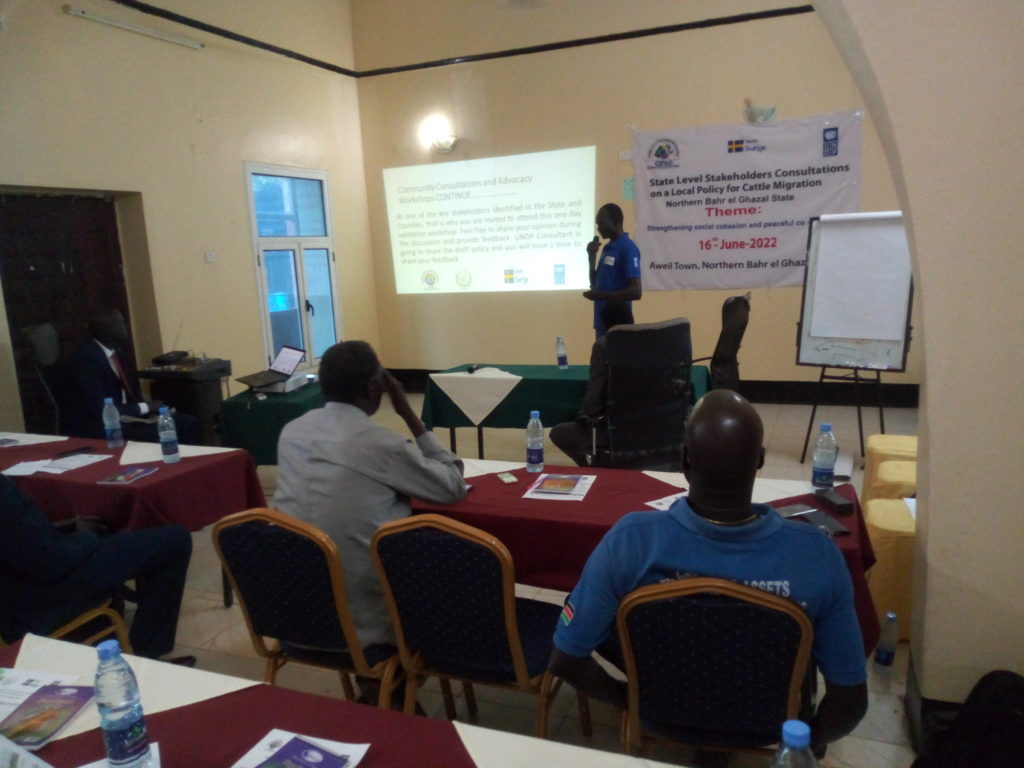State Level Stakeholders Consultative and Advocacy Workshop for the validation of draft Northern Bahr el Ghazal State local policy on seasonal cattle migration was successfully conducted on 16th June 2022
In Northern Bahr El Ghazal State, Community Initiative for Partnership and Development (CIPAD) with financial and technical support from United Nations Development Programme (UNDP) and Sweden has successfully conducted State Level stakeholders consultative and advocacy workshop for the validation of the draft Northern Bahr el Ghazal local policy on seasonal cattle migration and thefts on 16th of June 2022. The event was attended by 26 (7 females).
The workshop aimed at validating the draft Northern Bahr el Ghazal local policy on seasonal cattle migration that will contribute to enhanced ways of strengthening peaceful co-existence between pastoralist, farmers and host community in the state.
The participants who attended the workshop were invited from different institutions which includes State legislative assembly; Ministry of animal resource and fisheries; Ministry of peacebuilding; South Sudan Peace and Reconciliation Commission; Conflict Resolution and Reconciliation Commission; Ministry of Local Government; Counties; women group; youth group; Civil Society Organizations; State legal administration; and traditional leaders/chiefs.
The workshop was opened by Acting Minister of Peacebuilding, Hon. William Anyuon Kuol and moderated by William Kolong, the Regional Peace Coordinator for South Sudan Peace and Reconciliation Commission. Hon. William Anyuon during the opening remarks, clarify to the participants that the policy is very vital for the people of the state who are the host community in this case because the policy will replace all the resolutions that are always signed yearly by Dinka Malual and Resigate/Mesiriya Sudanese cattle herders as the permanent document that is going to be deliberated and endorsed by State Council of Ministers a memo; State Legislative Assembly will latter in the procedures go over it and approved it as a bill; and finally State Governor will assent to it as a law. Please put your inputs as stakeholders to see what is good for your community in the state to minimize the conflicts related to cattle migration, he concluded.
During the workshop, participants discussed the draft Northern Bahr el Ghazal local policy on seasonal cattle migration which was presented by United Nations Development Programme (UNDP) National Consultant Mr. Luka Madhieu. During the discussion, participants dwelled more on cattle migration routes as many proposed that migration routes must not be many in order to control the border crossing which was agreed at the end of the discussion; migration actors was also a hot point of discussion as others proposed that Palata or Amboro should not be counted as cattle migration actor in the policy, a proposal which was disputed by many participants and finally, all the participants reached consensus that Plata cattle herders must be cattle migration actors recognized by this cattle migration policy; security part of the policy stated that Sudanese cattle herders must not come to Northern Bahr El Ghazal State territories with horses because they use horses to killed people and run away but in the workshop, other participants proposed that they have to come with their horses but their horses should be registered and finally all participants after discussion agreed that horses can be allowed with the condition that each horse must be registered by the local authorities. Participants also proposed that the following must be reflected in the policy: Sudanese cattle herders must not unlawfully cut trees in the forest, must not involve in mining activities and other activities that contribute to the destruction of natural resources in the state.
Hon. Akoon Diing, the Chairperson of Governance, Peace and Security Committee in Northern Bahr El Ghazal State Legislative Assembly in his closing remarks, thanked United Nations Development Programme (UNDP), Sweden and CIPAD for making this policy possible, without you, we would have not think of this policy, he quoted. Hon. Akoon promised to the participants that he will be an advocate for this draft policy, I will follow up to ensure that all the legal procedures are taken for this policy to be assented into law as the relevant committee chairperson in the state assembly, he said. Hon. Akoon concluded that he will be responsible for the policy when it reaches the State Assembly and Hon. William Anyuon will be responsible for it when it reaches State Council of Ministers and both promised that they will engage Governor after all due processes to assent the policy into law.
